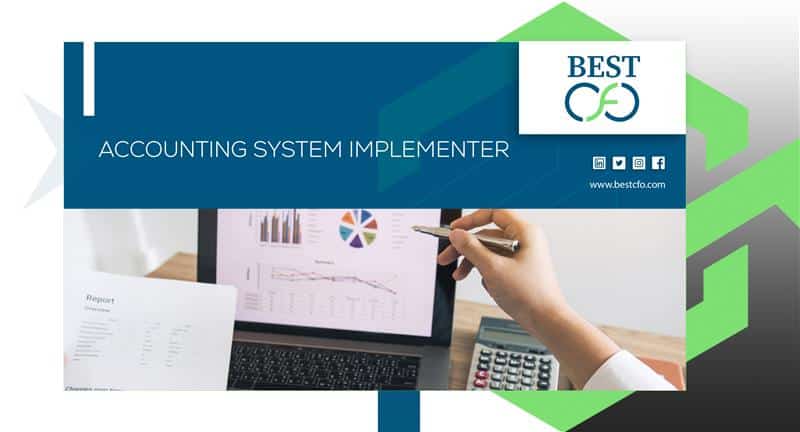
| Getting your Trinity Audio player ready... |
How Various Industries CFO Add Value To Your Business?
Today’s fast-paced society demands more from companies than simply fundamental accounting. They want someone to help them navigate difficult financial decisions, future planning, and ensure all adds up. A Chief Financial Officer (CFO) fits in there. But what if your CFO not only knew finance but also knew your sector inside and out? That’s the idea behind an industries CFO—someone who brings financial knowledge along with industry-specific experience. Whether it’s real estate, healthcare, construction, or marketing, having a CFO who knows your field can make all the difference.
What Does CFO Mean?
A CFO, or Chief Financial Officer, is the top person in a company’s finance department. They don’t just keep track of cash or deal with accounts payable and receivable. They handle financial reporting, plan budgets, manage payroll, and help businesses make smart choices with their money. In simple terms, a CFO helps a business grow, stay safe from risk, and stay on the right side of the law.
What Are a CFO’s Key Responsibilities?
A CFO has several responsibilities. Their work goes beyond simply counting money. It’s about developing a strategy and ensuring everything runs well. Among their key responsibilities are the following:
- Helping the business plan future income and costs.
- Making sure bills are paid on time and customers pay what they owe.
- Making sure the company meets all taxation rules.
- Making sure employees get paid and all deductions are correct.
- Using spreadsheets, tools like QuickBooks, or cloud computing accounting software to study data.
- Making sure the company follows regulatory compliance and legal liability rules.
- Managing debt, bank accounts, and cash flow.
- Reporting to business owners or the Board of Directors with clear financial statements.
- Supporting investment, audit, and business valuation efforts.
How CFO Add Value To Different Industries
Each business is different, and that’s where an industries CFO shines. By understanding the unique needs of a certain type of company, they give advice that fits just right.
CFO for the Real Estate Industry
In real estate, timing and budgeting are everything. A real estate CFO in this field helps manage property investments, tracks income, keeps an eye on market liquidity, and plans ahead using capital budgeting. They also work closely with bank partners and make sure all transactions are recorded correctly.
Manufacturing Industries CFO
Factories and production lines involve lots of moving parts—literally. A CFO here looks after asset management, monitors costs, keeps an audit trail, and ensures that the company gets the most out of each transaction account. They also help in deciding whether to buy or lease equipment and manage supplies smartly.
CFO for the Construction Industry
Construction projects can last for months and involve large budgets. A CFO makes sure payments are made on time, plans for future spending, handles invoices, and ensures money is not wasted. They also work with tools like accounting software and help deal with legal liability issues on big jobs.
Healthcare Industries CFO
A CFO for healthcare companies deals with hospitals, clinics, or care centers. Here, financial services must balance business economics with patient care. The CFO makes sure all bills are paid, insurance claims are handled, and all financial records meet health industry laws. They also help plan for future growth while managing tight budgets and high regulatory compliance.
Professional Services CFO
For lawyers, consultants, or accountants, time is money. An industries CFO in this area tracks billable hours, manages fee structures, oversees personal finance issues for small firm owners, and ensures taxes are handled correctly, especially if the business is a sole proprietorship or partnership.

CFO for Media & Marketing Industry
Creative businesses like advertising agencies or digital marketing firms need smart marketing strategies backed by solid numbers. A CFO helps track sales, manage budgets, measure the profit margin, and use tools like Evernote or other records management systems to stay organized.
Why Choose The Best CFO For Your Industry?
Choosing the right CFO is not just about hiring someone who’s good with numbers. It’s about finding someone who fits your business like a glove.
Industrial Experts
An industries CFO understands the unique challenges your business faces. They don’t need a crash course in your trade—they’re already fluent in it. This saves time and boosts results.
Pocket-Friendly Prices
Hiring a part-time CFO might be costly. But with outsourcing, you can get top-quality financial help at a price that fits your budget. You pay for the services you need—nothing more.
Qualified Professional
A strong CFO is often a Certified Public Accountant (CPA) with years of experience. They know the ins and outs of financial accounting, tax deduction, and economic law. Whether you’re dealing with a corporation or a private sector company, they’ve got the know-how.
24/7 Consultancy
Need help at odd hours? Many CFO services offer around-the-clock support, helping with urgent payment, backup, or evaluation needs. This kind of attention gives peace of mind and helps businesses avoid surprises.
Conclusion
Having a CFO is important. But having an industries CFO—someone who knows your business deeply—is a real game changer. Whether you’re in healthcare, construction, media, or manufacturing, these professionals give clear direction, manage finance smartly, and help you make the most of your business ownership.
Want the best? Choose Best CFO, a trusted name in financial help for all kinds of industries. From financial crisis prevention to daily management, they’re ready to take your business to the next level.
FAQs
1: What’s the difference between a CFO and an industries CFO?
A regular CFO knows how to manage finances. An industries CFO adds to that by knowing your specific business inside out, offering tailored advice.
2: Is hiring a CFO expensive?
It can be—but many businesses now use outsourced CFOs, which saves money while still getting expert help.
3: What tools does a CFO use?
From QuickBooks to cloud computing platforms and spreadsheets, CFOs use a mix of software to manage budgets, track payments, and handle taxes.
4: Can a CFO help with audits or tax filing?
Yes! CFOs handle audit preparation, income tax audits, and make sure all filings are accurate.
5: Does every business need a CFO?
Not always full-time. But having part-time or project-based help from a CFO, especially one with service industry or corporate finance knowledge, can make a big difference.
Previous Post
Financial Reporting and Analysis 101: The Ultimate Guide
Post a comment Cancel reply
Related Posts
Do I Need An Accountant As A Sole Trader?
Do I Need An Accountant As A Sole Trader? Are you a sole trader running…
Fractional Finance 101: Unlocking the Power of Micro-Investing
Fractional Finance 101: Unlocking the Power of Micro-Investing Have you ever looked at the price…
Cash or Accrual Accounting: Which One Should You Use?
Cash or Accrual Accounting: Which One Should You Use? Many businesses have a choice between…
Top Accounting System Implementer – QuickBooks & More
Top Accounting System Implementer – QuickBooks & More Choosing the right accounting software is one…
 Demos
Demos  Colors
Colors  Docs
Docs  Support
Support 














